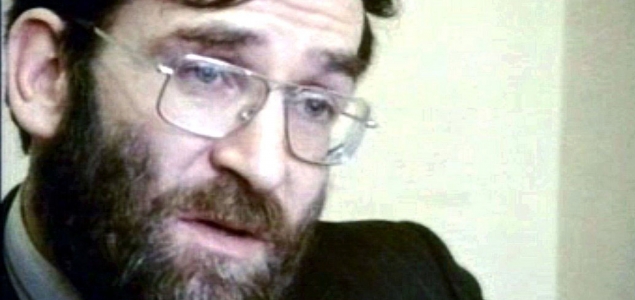On the 20th anniversary of the arrest of Britain’s biggest serial killer, a new documentary in ITV’s Crime & Punishment strand offers a unique insight into how doctor Harold Shipman got away with secretly poisoning and murdering more than 250 of his patients across three decades.
Speaking for the first time, former detectives from Greater Manchester Police who were at the heart of Britain’s biggest-ever murder investigation give their vivid insights into a case which shocked the nation.
They reveal the tactics they used to bring the man they called ‘Dr Death’ to justice, the mistakes Shipman made and the emotional toll the case had on officers and the local community.
Shipman, a well respected family doctor from the small town of Hyde near Manchester, was initially arrested for the murder of one of his patients, 81-year-old Kathleen Grundy, in September 1998.
Detectives explain how the scale of the investigation quickly escalated and the intense pressure they faced. At the time, a local newspaper identified other patients of Shipman who had died in suspicious circumstances. National TV crews descended on the town of Hyde and anxious families demanded answers from the police.
Former detective chief superintendent Bernard Postles explains: “To start off with we were investigating one death – the death of Kathleen Grundy. Within a couple of weeks that grew to seventeen deaths and again within a very short period of time it grew to sixty-two deaths.”
Detective Mark Denham, who spent hours interviewing Shipman, offers a new insight into his mindset. He says Shipman was dismissive and arrogantly deflected the detective’s line of questioning throughout. Shipman was convinced he could get away with murder. He had killed his patients when they were alone and as a doctor he felt there was nothing he couldn’t explain away.
The documentary features video and audio tapes of the police’s interrogation of Shipman. At one point Shipman even tries to suggest that one of the victims could have taken a lethal dose of drugs herself.
A broken key on a typewriter seized from Shipman’s surgery and a forensic analysis of his computer showing he had tampered with the medical records of patients offered vital evidence. But with no witnesses, no crime scene or murder weapon, the hard evidence of Shipman’s murderous method was buried in the crematories of Hyde.
Greater Manchester Police took the unprecedented step of ordering the exhumation of the bodies of Kathleen Grundy and 11 other victims. Former detective Janet Rimmer explains it was not a decision taken lightly. She says: “We were digging the grave back up to do more tests on their mother that they had been grieving for years. So it was opening the wounds again. They would be grieving again the same as they were the first time round.”
These were the first ever exhumations Greater Manchester Police had carried out. Former detective Dave O’Brien, who revisits Hyde Cemetery in the documentary, reveals the impact they had on the wider community. He says: “You can’t do it quietly, unfortunately. I can remember the old folks’ home there. There were old people at the windows, crying. It wasn’t nice, at all. It is something that I am never going to forget. It was horrendous.”
A few weeks after the exhumations, forensic tests showed that the victims had been injected with lethal levels of the painkiller diamorphine. It was the final piece of evidence the detectives needed. Shipman was charged with 15 murders and found guilty on all counts after a trial lasting 57 days.
Officers knew that Shipman was responsible for many more. The day after his conviction a public inquiry was launched to discover the true scale of his crimes. It investigated the deaths of 900 of Shipman’s patients and years later concluded he was responsible for over 250 murders.
This documentary also includes exclusive testimony from several key people who encountered Shipman in the early stages of his career. Nurse Sandra Whitehead recounts how she is still haunted by one particular night-shift working with Shipman on the hospital wards at Pontefract General Infirmary in 1972. Three patients, who didn’t appear to be seriously ill, died in suspicious circumstances. Just 18 years old, Sandra didn’t report her concerns about the deaths or Shipman to hospital management at the time. Years later, she came forward to give vital evidence at the public inquiry.
Retired West Yorkshire police officer George McKeating, in his first television interview, reveals the scale of Shipman’s drug addiction that nearly saw him struck off the medical register. McKeating arrested Shipman for illegal drug possession and forging prescriptions in 1975, finding ‘track marks’ down both of his arms.
With new witness testimony, access to the police interrogation tapes and interviews with the relatives of the victims, this documentary exposes how Shipman groomed a community, abused his position of trust and preyed on the most vulnerable.







